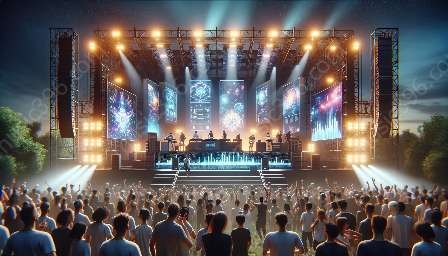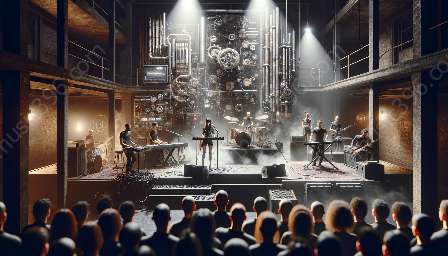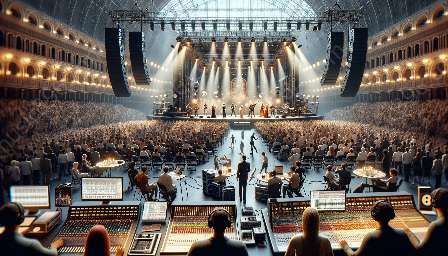Music performances are a key aspect of the entertainment industry, encompassing various genres, from classical to pop, rock, jazz, and more. Behind every successful music performance, there is a comprehensive production management process that ensures seamless execution of the event. This involves planning, coordinating, and overseeing various aspects, such as stage design, sound and light setups, artist management, logistics, and budgeting. In this comprehensive guide, we will delve into the intricacies of production management for music performances, covering the key elements, challenges, and best practices.
Understanding the Role of Production Management
Production management for music performances involves the coordination and execution of all technical and logistical elements related to a live music event. This includes overseeing the production team, managing resources, equipment, and schedules, and ensuring the smooth flow of the performance. Production managers serve as the central point of contact for all stakeholders involved in the event, including artists, venue staff, technical crew, and event organizers.
Key Elements of Production Management for Music Performances
- Event Planning and Coordination: This involves the initial stage of conceptualizing and planning the music performance, including selecting the venue, determining the technical requirements, and creating a production schedule.
- Stage and Set Design: Production managers work with set designers and stage crew to create visually appealing and functional stage setups that complement the music performance.
- Sound and Lighting: Ensuring high-quality sound and lighting is essential for creating an immersive experience for the audience. Production managers collaborate with audio and lighting professionals to design and execute the technical aspects of the performance.
- Logistics and Operations: Managing logistics such as equipment transportation, crew schedules, and load-in/load-out processes is crucial for the efficient execution of music performances.
- Artist Management: Coordinating with artists, their management teams, and their technical riders to meet their performance requirements is a vital aspect of production management.
- Budgeting and Financial Management: Production managers are responsible for creating and managing budgets for the entire production, including equipment rentals, crew wages, venue costs, and miscellaneous expenses.
Challenges in Production Management for Music Performances
While production management is essential for the success of music performances, it also comes with its set of challenges. These may include last-minute changes in artist requirements, technical glitches, venue constraints, budget limitations, and unforeseen logistical hurdles. Overcoming these challenges requires adaptability, quick problem-solving skills, and a strong understanding of the music industry.
Best Practices for Successful Production Management
Implementing best practices is crucial for ensuring the smooth management of music performances. Some key best practices include:
- Effective Communication: Maintaining open lines of communication among all stakeholders is critical for addressing issues and ensuring everyone is aligned with the production plan.
- Rigorous Planning and Contingency Preparedness: Thorough planning and the ability to adapt to unexpected changes are essential for successful production management.
- Team Collaboration: Building a strong and cohesive production team that works collaboratively towards a common goal is vital for achieving excellence in music performance management.
- Attention to Detail: Paying close attention to every aspect of the production, from technical requirements to artist needs, can prevent errors and ensure a flawless performance.
- Continuous Improvement: Reflecting on past performances and continuously seeking opportunities for improvement can lead to more successful and efficient production management in the future.
Conclusion
Production management for music performances is a multifaceted process that requires meticulous planning, coordination, and execution. By understanding the key elements, challenges, and best practices associated with production management, music event organizers and production managers can ensure the seamless delivery of memorable and impactful music performances.















































